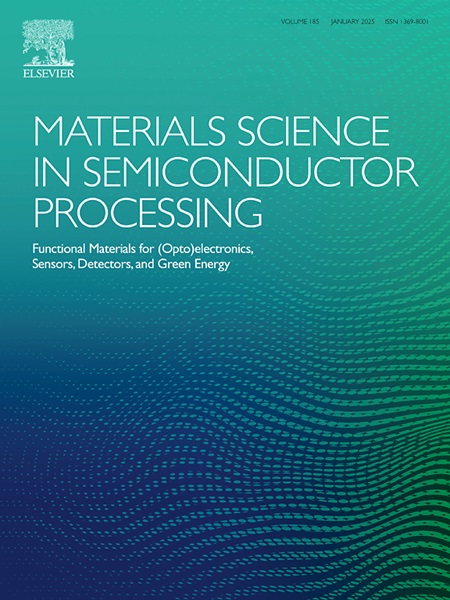Exploring the structural and electronic properties of N-doped Ti2C MXenes for novel applications in advanced materials and devices: A DFT study
IF 4.2
3区 工程技术
Q2 ENGINEERING, ELECTRICAL & ELECTRONIC
引用次数: 0
Abstract
MXenes, a category of two-dimensional transition metal carbides and nitrides, have attracted significant interest owing to their distinctive characteristics. This study utilizes Density Functional Theory (DFT) to examine the effects of nitrogen doping on the structural and electrical properties of Ti2C MXenes. N-doping induces significant alterations in the lattice structure and electronic properties, culminating in an elevated density of states at the Fermi level, indicating improved conductivity. Furthermore, optical characteristics such as reflectivity and loss function are affected by N-doping, resulting in a shift in the intensity of the reflectivity peak. The alterations provide N-doped Ti2C MXenes viable candidates for advanced applications in energy storage, catalysis, and electronic devices, facilitating future empirical and theoretical investigations in MXene-based materials.
探索 N 掺杂 Ti2C MXenes 的结构和电子特性,以便将其应用于先进材料和设备中:DFT 研究
MXenes 是一类二维过渡金属碳化物和氮化物,因其独特的特性而备受关注。本研究利用密度泛函理论(DFT)研究了氮掺杂对 Ti2C MXenes 结构和电学特性的影响。氮掺杂使晶格结构和电子特性发生了显著变化,最终导致费米级态密度升高,从而提高了导电性。此外,反射率和损耗函数等光学特性也受到 N 掺杂的影响,导致反射率峰值的强度发生变化。这些变化为掺杂 N 的 Ti2C MXene 在储能、催化和电子设备方面的先进应用提供了可行的候选材料,有助于未来对基于 MXene 的材料进行经验和理论研究。
本文章由计算机程序翻译,如有差异,请以英文原文为准。
求助全文
约1分钟内获得全文
求助全文
来源期刊

Materials Science in Semiconductor Processing
工程技术-材料科学:综合
CiteScore
8.00
自引率
4.90%
发文量
780
审稿时长
42 days
期刊介绍:
Materials Science in Semiconductor Processing provides a unique forum for the discussion of novel processing, applications and theoretical studies of functional materials and devices for (opto)electronics, sensors, detectors, biotechnology and green energy.
Each issue will aim to provide a snapshot of current insights, new achievements, breakthroughs and future trends in such diverse fields as microelectronics, energy conversion and storage, communications, biotechnology, (photo)catalysis, nano- and thin-film technology, hybrid and composite materials, chemical processing, vapor-phase deposition, device fabrication, and modelling, which are the backbone of advanced semiconductor processing and applications.
Coverage will include: advanced lithography for submicron devices; etching and related topics; ion implantation; damage evolution and related issues; plasma and thermal CVD; rapid thermal processing; advanced metallization and interconnect schemes; thin dielectric layers, oxidation; sol-gel processing; chemical bath and (electro)chemical deposition; compound semiconductor processing; new non-oxide materials and their applications; (macro)molecular and hybrid materials; molecular dynamics, ab-initio methods, Monte Carlo, etc.; new materials and processes for discrete and integrated circuits; magnetic materials and spintronics; heterostructures and quantum devices; engineering of the electrical and optical properties of semiconductors; crystal growth mechanisms; reliability, defect density, intrinsic impurities and defects.
 求助内容:
求助内容: 应助结果提醒方式:
应助结果提醒方式:


